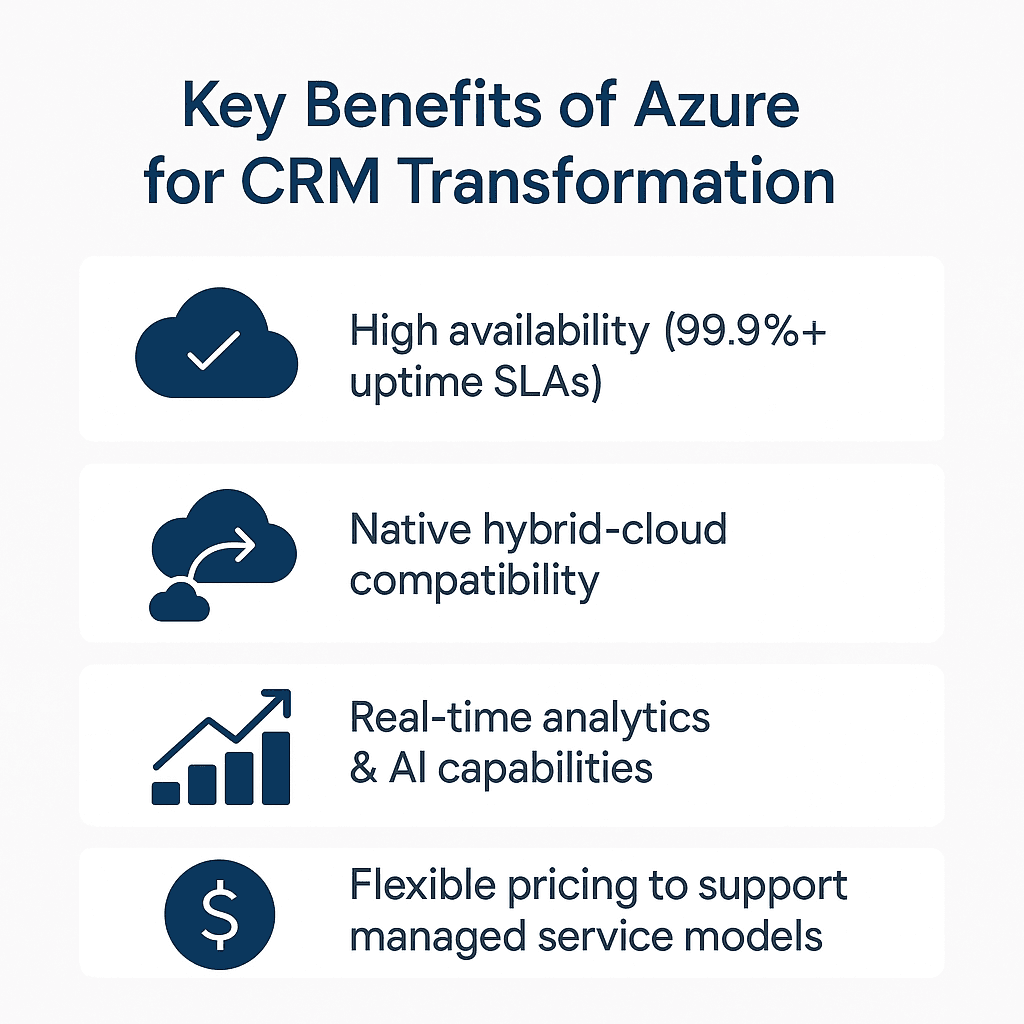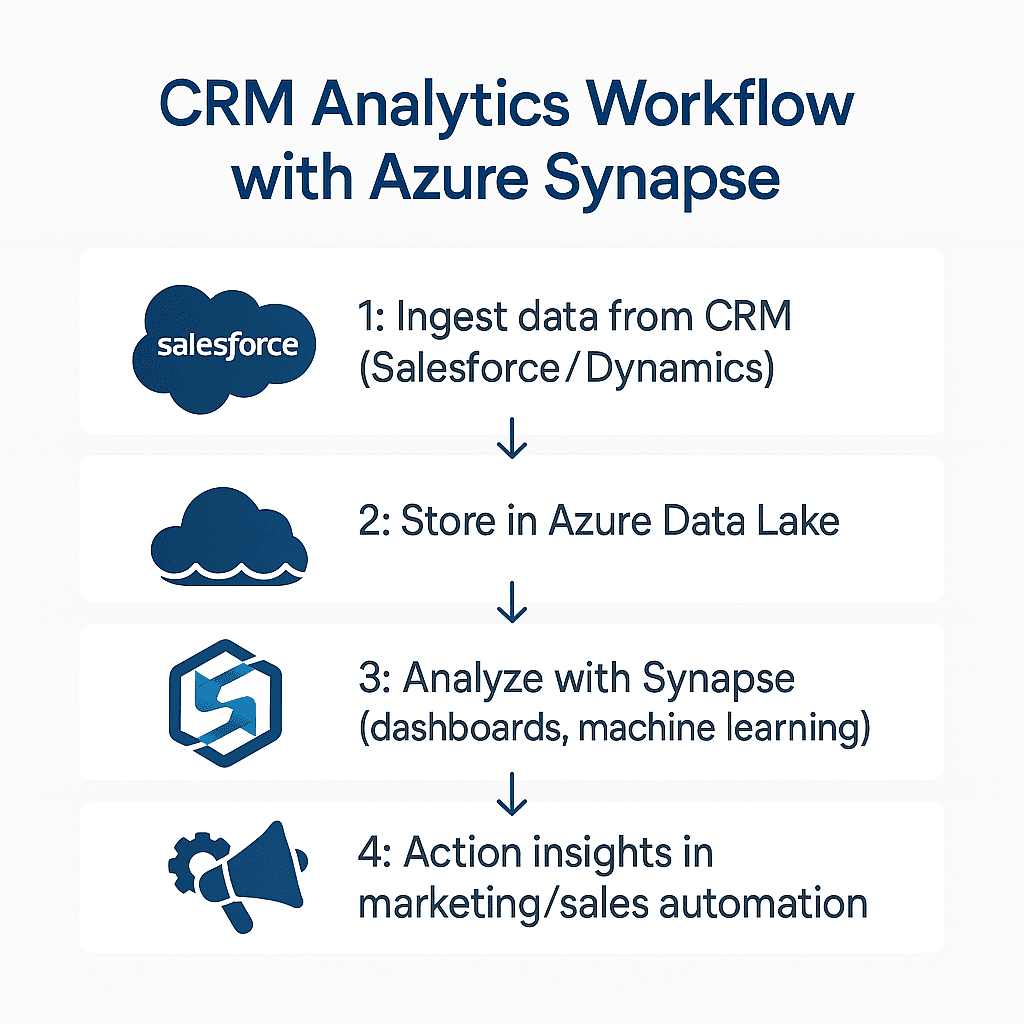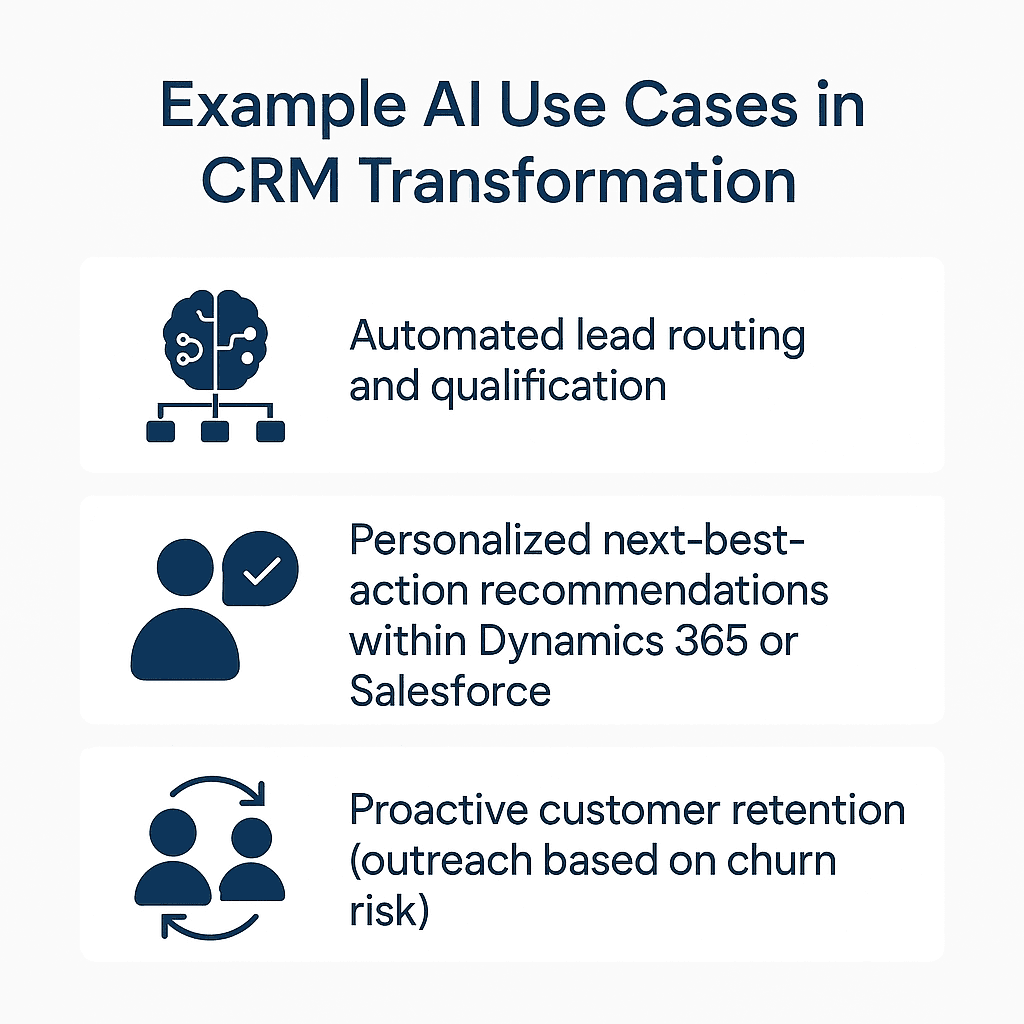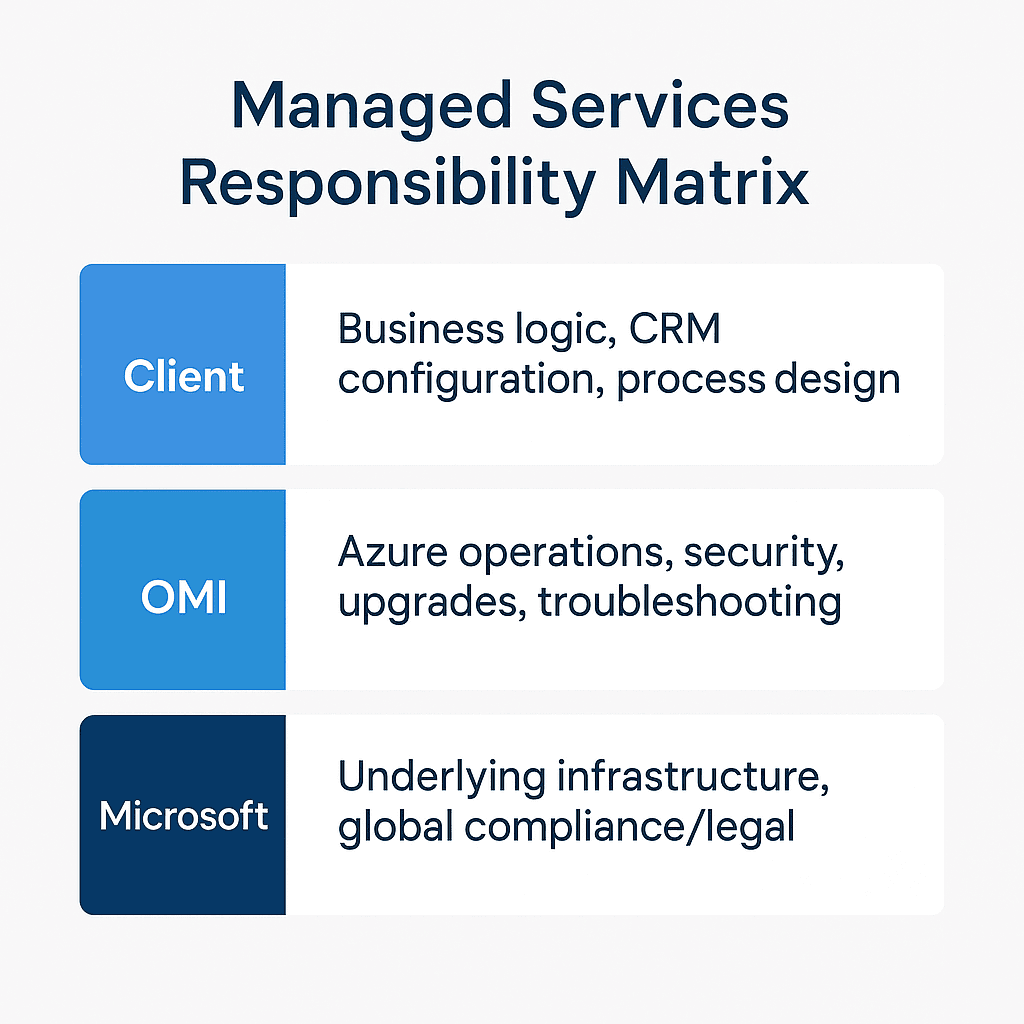Top Azure Services for Scalable Digital Transformation in 2025
August 04
CRM Configuration
Blogs

As digital transformation accelerates in 2025, organizations face mounting pressure to scale operations, integrate smarter analytics, and drive seamless CRM optimization. The Azure ecosystem stands out not just for its cutting-edge cloud infrastructure, but also for its robust portfolio of services tailor-made for business agility and customer success. At OMI, our experience driving CRM excellence for clients through managed cloud services uniquely positions us to identify which Azure tools truly move the needle for enterprises with advanced customer management needs.
Why Azure is Foundational for Scalable Digital Transformation
Before diving into specific services, it’s crucial to recognize why Azure remains the preferred cloud for CRM consultants, Salesforce administrators, and IT leaders alike:
- Global Reach & Compliance: Azure’s worldwide data centers enable regional data residency and support privacy compliance key for regulated industries.
- Comprehensive Integration: Seamless connectivity with Microsoft Dynamics, Salesforce, and a host of enterprise SaaS platforms accelerates integration projects.
- Security at Scale: Enterprise-grade security controls with built-in AI threat monitoring ensure business continuity and peace of mind.
Azure’s robust cloud platform underpins many of the benefits in modern CRM transformation from 99.9%+ uptime SLAs to native AI and analytics integration. Microsoft highlights these capabilities, along with other critical cloud services like Azure Logic Apps and Azure Synapse, in their Top 10 Azure Services Every Business Needs guide.

Core Azure Services Powering Digital Transformation
Let’s explore the Azure lineup our experts at OMI rely upon most for CRM optimization, managed services, and AI consulting:
1. Azure Integration Services: Orchestrating Systems at Scale
Modern CRM systems rarely operate in isolation. The need for effortless data flow between Salesforce, Microsoft Dynamics, marketing automation tools, and custom business apps has never been greater. Azure Integration Services, including Logic Apps and Service Bus, deliver this flexibility:
- Azure Logic Apps: Low-code/no-code workflows connect cloud (e.g., Salesforce) and on-premises resources. Ideal for automating lead nurturing, case escalation, billing, and more.
- Azure Service Bus: Reliable enterprise messaging backbone for scaling across distributed systems essential for organizations managing high CRM transaction volumes.
- API Management: Secure, monitor, and socialize APIs for partner and internal integrations, streamlining marketing automations or client self-service portals.
Azure API Management isn’t just an integration backbone it delivers measurable business value. A Forrester‑commissioned TEI study conducted in 2025 found that organizations realized a 315% ROI over three years, driven by:
- "30% more efficient API development and policy configuration"
- "50% faster time to market"
- "Enhanced governance and AI-readiness through centralized API management."
This aligns directly with the benefits seen when implementing Service Bus and Logic Apps providing high throughput, streamlined API control, and secure, scalable integration for next-generation CRM use cases.
Implementation Best Practices
- Engage business analysts early to map key process triggers
- Standardize data formats up front critical for Salesforce/Microsoft interoperability
2. Azure Data Services: Insights-Driven CRM Optimization
Every digital transformation is, at its core, a data story. Azure provides a powerful data stack synced perfectly with business intelligence tools and CRM environments:
- Azure Synapse Analytics: Fast, unified analytics for petabyte-scale CRM datasets empowering predictive insights for sales forecasting, churn prediction, and customer segmentation.
- Azure Data Factory: ETL (Extract, Transform, Load) at scale for integrating Salesforce, Dynamics, and third-party cloud data, then loading it into centralized data lakes for actionable reporting.
- Azure SQL Database: Secure, managed RDBMS with auto-scaling to support dynamic B2B, B2C, or hybrid CRM workloads.
Implementation Best Practices
- Enable governance policies (data masking, encryption) from day one for regulatory compliance
- Align data pipelines with real-time business KPIs to ensure actionable analytics

3. Azure AI & Cognitive Services: Supercharging Customer Engagement
Artificial intelligence now sits at the heart of digital transformation. Azure’s AI portfolio makes it practical and secure to introduce intelligent automation without heavy upfront investment:
- Azure OpenAI Service: Deploy advanced natural language processing models to automate CRM case triage, sentiment analysis, and personalized communications.
- Cognitive Services: Turn unstructured data (images, text, voice) into CRM-ready intelligence for enriching customer profiles, chatbots, and automated support workflows.
- Azure Machine Learning: Custom-build sales scoring models or churn predictors, leveraging managed services for versioning and compliance.
Implementation Best Practices
- Conduct small-scale pilots before wide rollout; always monitor model accuracy against business targets
- Align with data privacy teams to ensure responsible use of AI/ML in customer-facing scenarios

4. Azure DevOps & Managed Services: Ensuring Continuous Improvement
Any modernization effort can falter without robust operations. Leveraging Azure DevOps accelerates secure deployment of CRM integrations and customizations, while managed cloud services guarantee ongoing performance for mission-critical workloads:
- Azure DevOps: End-to-end pipeline automation for rapid deployment and rollback of new CRM features supporting CI/CD best practices in a multi-cloud world.
- Azure Monitor & Security Center: Real-time monitoring and proactive threat analysis, reducing downtime for sales and marketing teams.
- Managed Azure Services: Offload platform maintenance, security patching, and backups to a trusted partner so your internal teams can focus on strategic transformation not routine IT chores.

Steps to Start Your Azure-Powered Digital Transformation
- Assess Your Current State: Audit CRM integrations, data silos, and manual processes identify quick wins and bottlenecks.
- Define Business Outcomes: Work backward from customer experience goals, revenue targets, or compliance mandates.
- Select Azure Services: Prioritize tools that address current pain points and position you for future scale (e.g., prioritize Logic Apps for integrations or Synapse for data-driven marketing).
- Partner with Experts: Engage managed service providers like OMI to accelerate deployment and ensure best practices.
- Iterate and Optimize: Use Azure’s analytics tools to continually monitor, refine, and innovate ROI doesn’t end after go-live.
Conclusion: Make 2025 the Year Your CRM Ecosystem Delivers Breakthrough Results
The path to scalable digital transformation isn’t just about migrating workloads. It’s about weaving together integration, automation, analytics, and AI in ways that deliver measurable business value. From CRM optimization to AI-powered customer insights, Azure’s suite empowers organizations to act with agility and confidence.
If you’re ready to kickstart or accelerate your own transformation journey, our team at OMI is always ready to help whether it’s optimizing your Salesforce instance, integrating Microsoft Dynamics, or deploying cutting-edge Azure services. Let’s work together to turn your digital ambitions into reality.